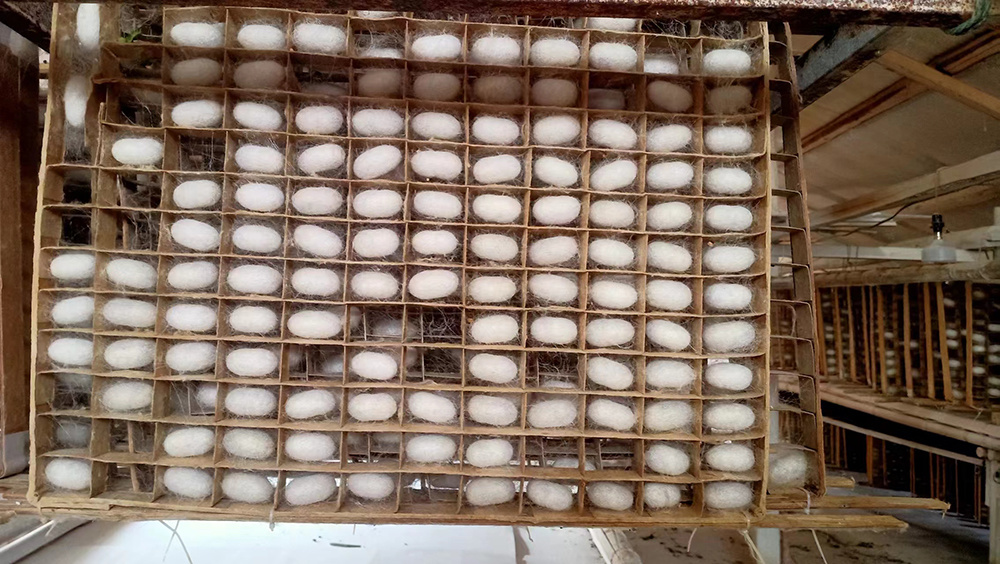Cocoon
The silkworm cocoon refers to the cocoon of the mulberry silkworm, which is a cystic protective layer of the silkworm pupa stage and contains the pupa body. It is not only a raw material for reeling, but also has a variety of uses and nutritional value. The silkworm cocoons are long oval, oval waist, spherical or spindle-shaped and other different shapes, or slightly constricted in the middle. The color of the cocoon is diverse, white, yellow, light green, red and other colors, about 3~4cm long, 1.7~2.1cm in diameter. Its surface is white, with irregular wrinkles, and is accompanied by a villous silk.
Key words:
Dehong Zhengxin
Mulberry planting
Green Silk
The Silk Road
Classification:
Product Description
1. basic information
The silkworm cocoon refers to the cocoon of the mulberry silkworm, which is a cystic protective layer of the silkworm pupa stage and contains the pupa body. It is not only a raw material for reeling, but also has a variety of uses and nutritional value.
Morphological characteristics: silkworm cocoons are long oval, oval waist-shaped, spherical or spindle-shaped and other different shapes, or slightly constricted in the middle. The color of the cocoon is diverse, white, yellow, light green, red and other colors, about 3~4cm long, 1.7~2.1cm in diameter. Its surface is white, with irregular wrinkles, and is accompanied by a villous silk.
2. economic value
Textile raw materials: The main economic value of cocoons is that their cocoon layer can be reeled into a variety of textile products, such as silk quilts, silk pajamas, silk underwear, silk T-shirts and scarves. These products are very popular with consumers because of their excellent texture and comfort.
Other uses: Cocoon clothing and silk reeling waste can be used as silk cotton and silk spinning raw materials, further broadening the scope of the use of cocoon.
3. nutritional value
Silkworm pupa (that is, the pupa in the cocoon) is rich in protein, vitamin B and a variety of trace elements (such as iron, zinc, copper, manganese, etc.), which is a high-quality source of nutrition. These ingredients play an important role in maintaining health, promoting growth and development, and enhancing immunity.
4. medicinal value
Cocoon has medicinal value in traditional Chinese medicine, can be used for the treatment of blood in the stool, urine, blood collapse, thirst, nausea, malnutrition, carbuncle swelling and other diseases. Its medicinal efficacy has been recorded in ancient books such as Compendium of Materia Medica.
5. production process
Silk reeling: Put the selected cocoon into the silk reeling machine for silk reeling. During the silk reeling process, attention should be paid to factors such as temperature, time and strength to ensure the quality of the silk.
Silk processing: the raw silk reeled needs a series of processing, including degumming, drying, shaping, cutting and other steps, in order to obtain the final silk products.
6. storage and maintenance
When storing and handling silkworm cocoons, chemical cleaning should be avoided to avoid affecting the quality and hygiene and safety of silk. At the same time, also need to prevent insects, rodents and other animals against.
In summary, cocoon as an important source of textile raw materials and nutritious food, has a wide range of economic value and medicinal value. As people pay more and more attention to health and environmental protection, the market prospect of cocoon and its products will be broader.
Get free product quotes
Welcome to leave your information to get in touch with us!







